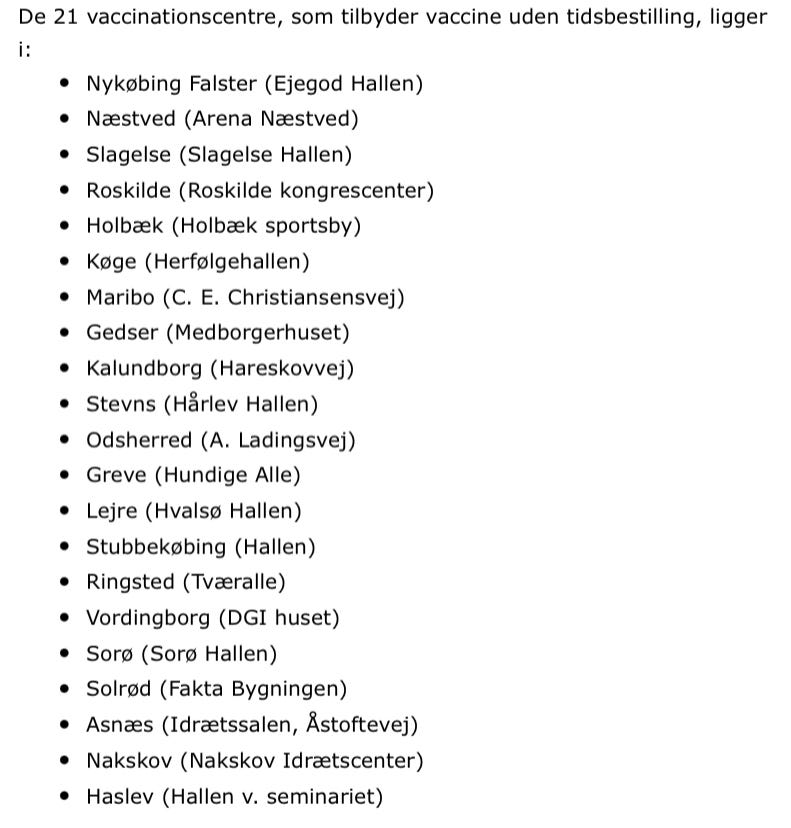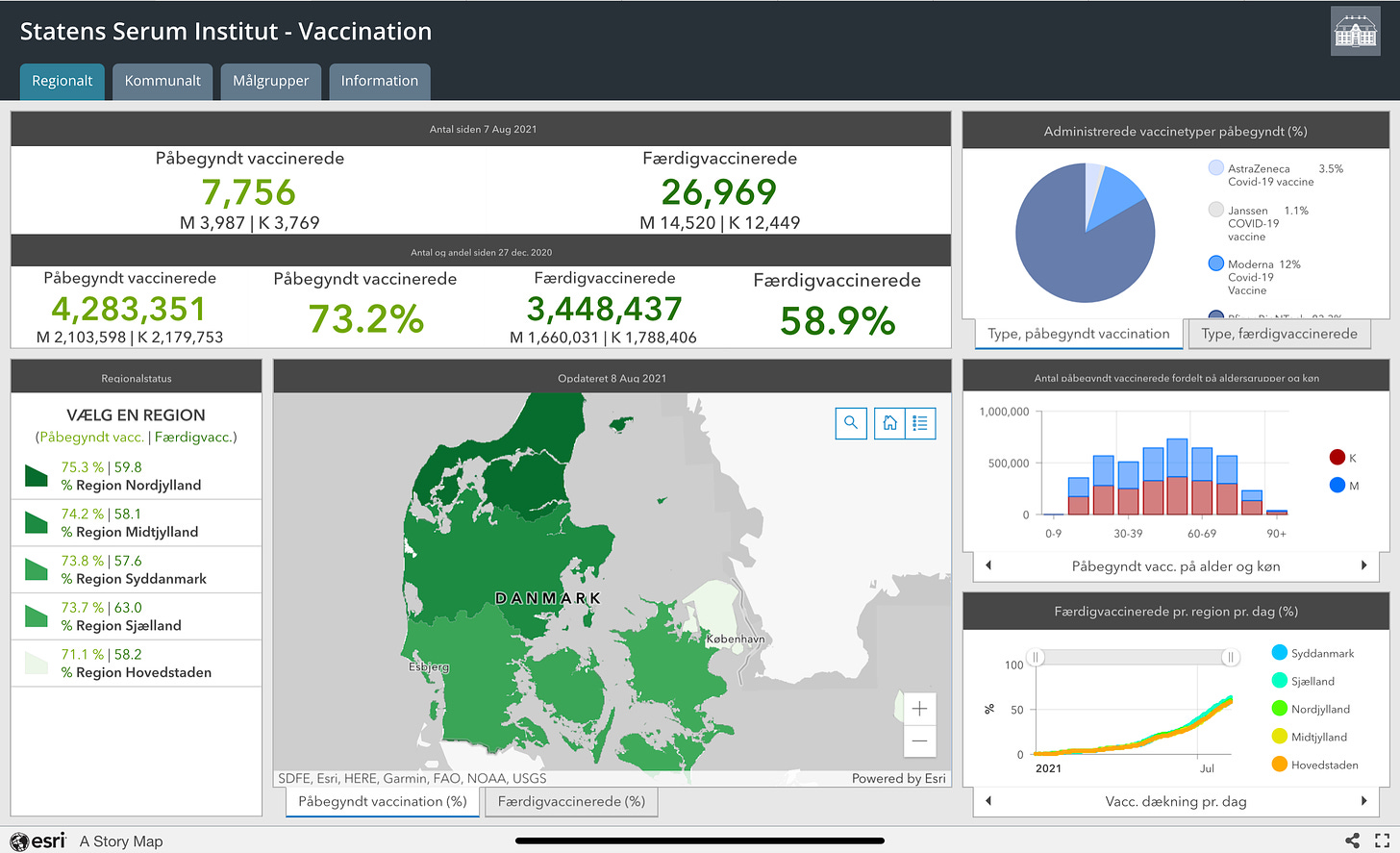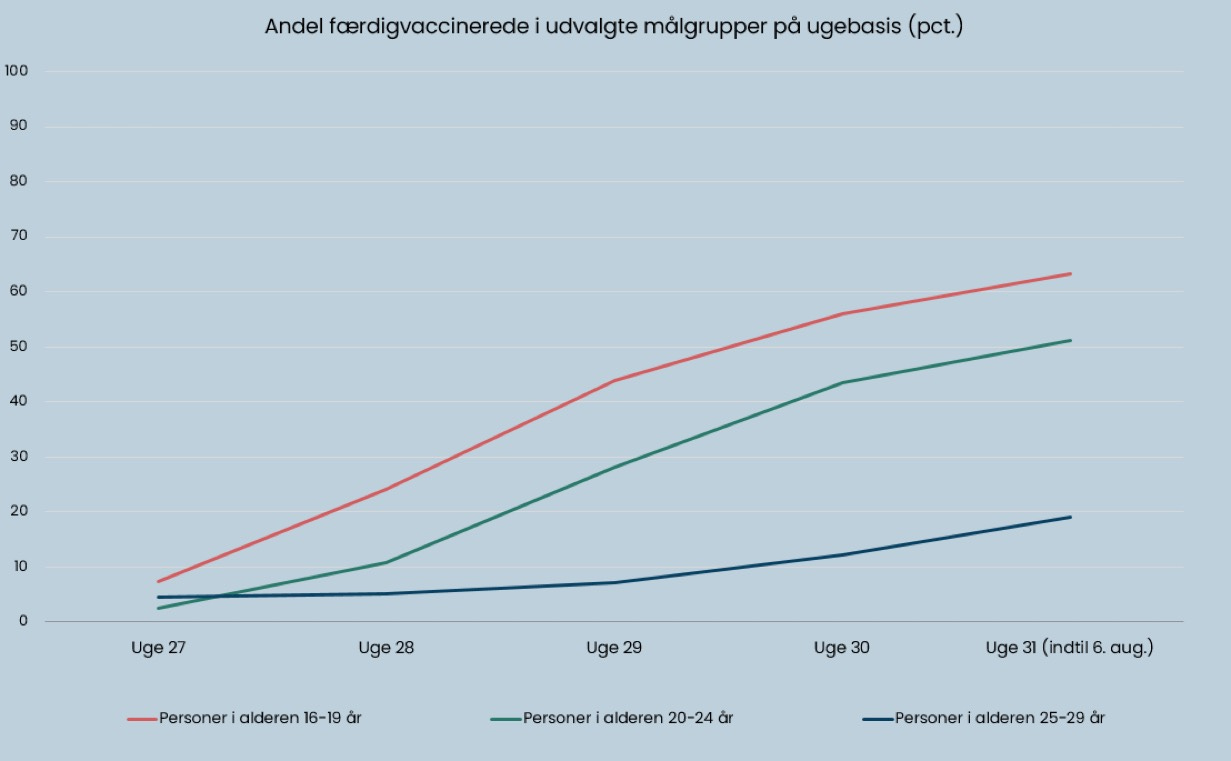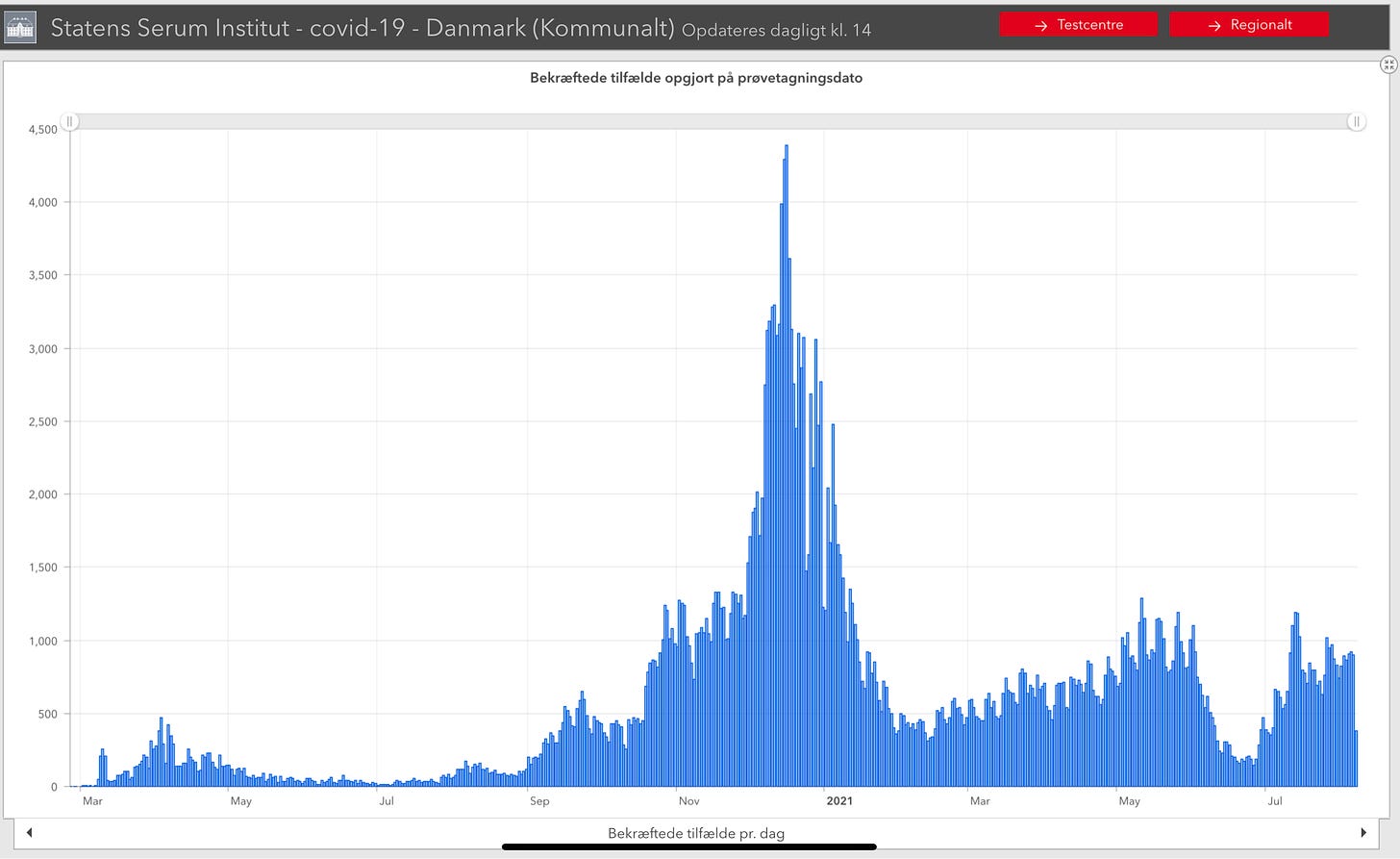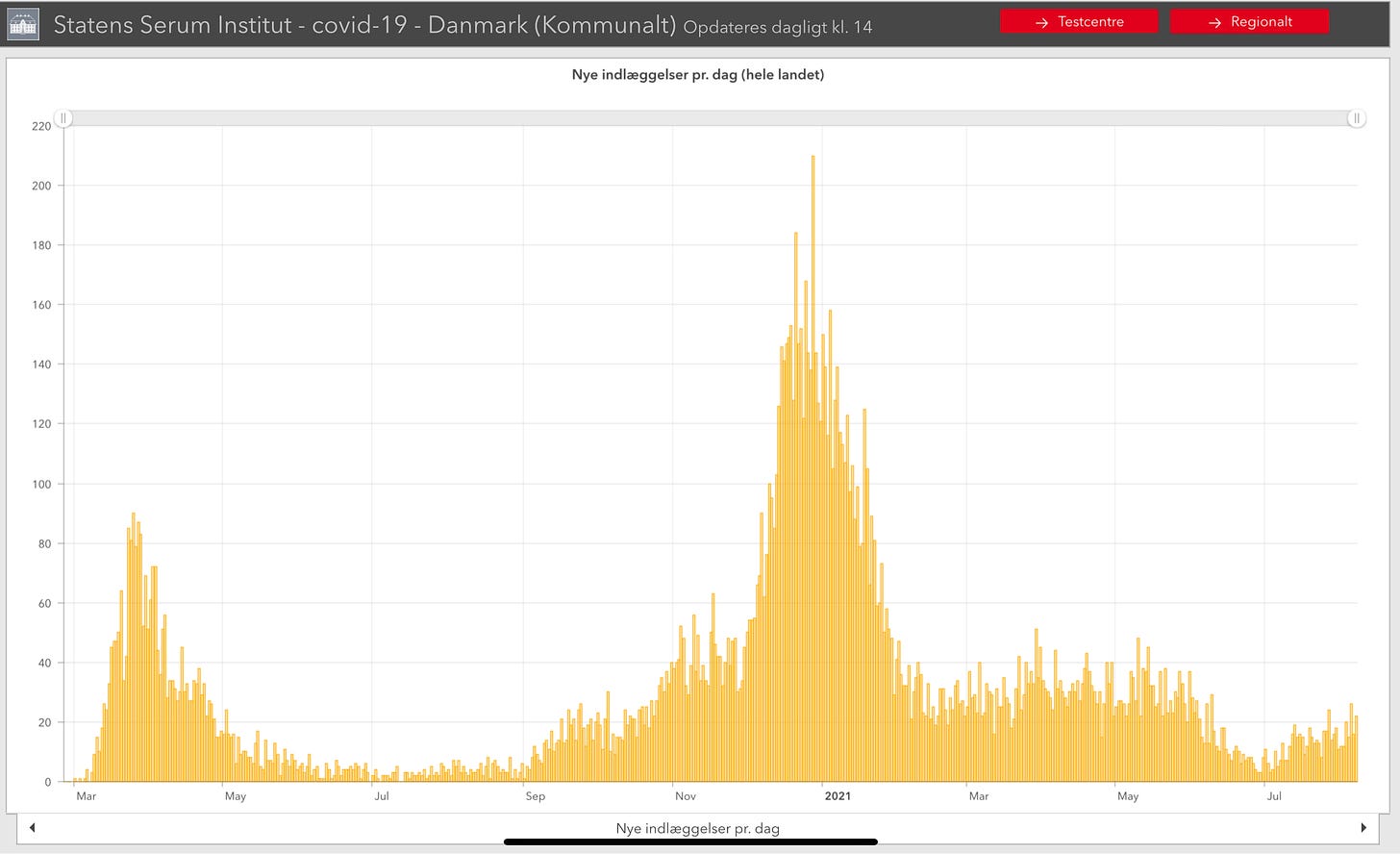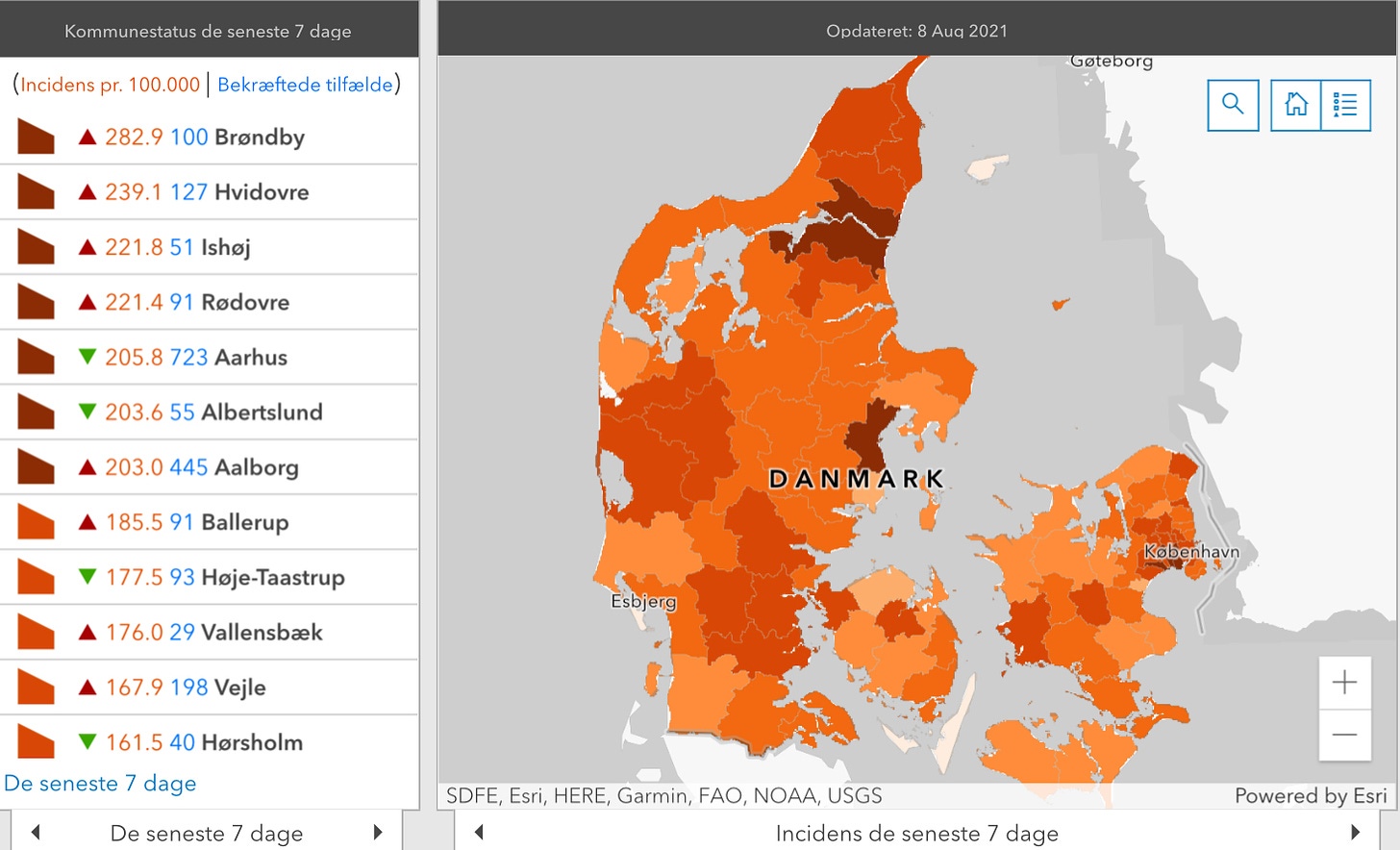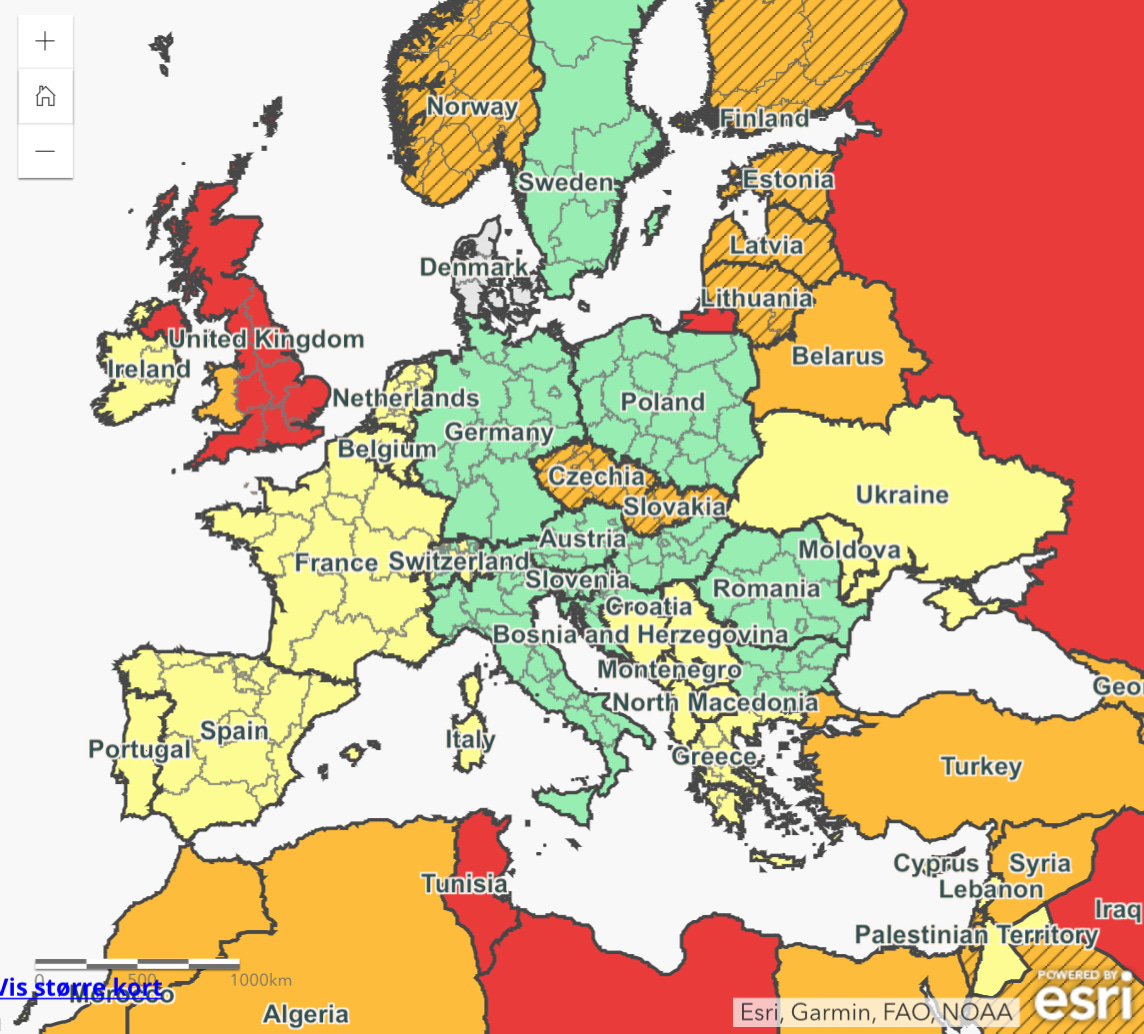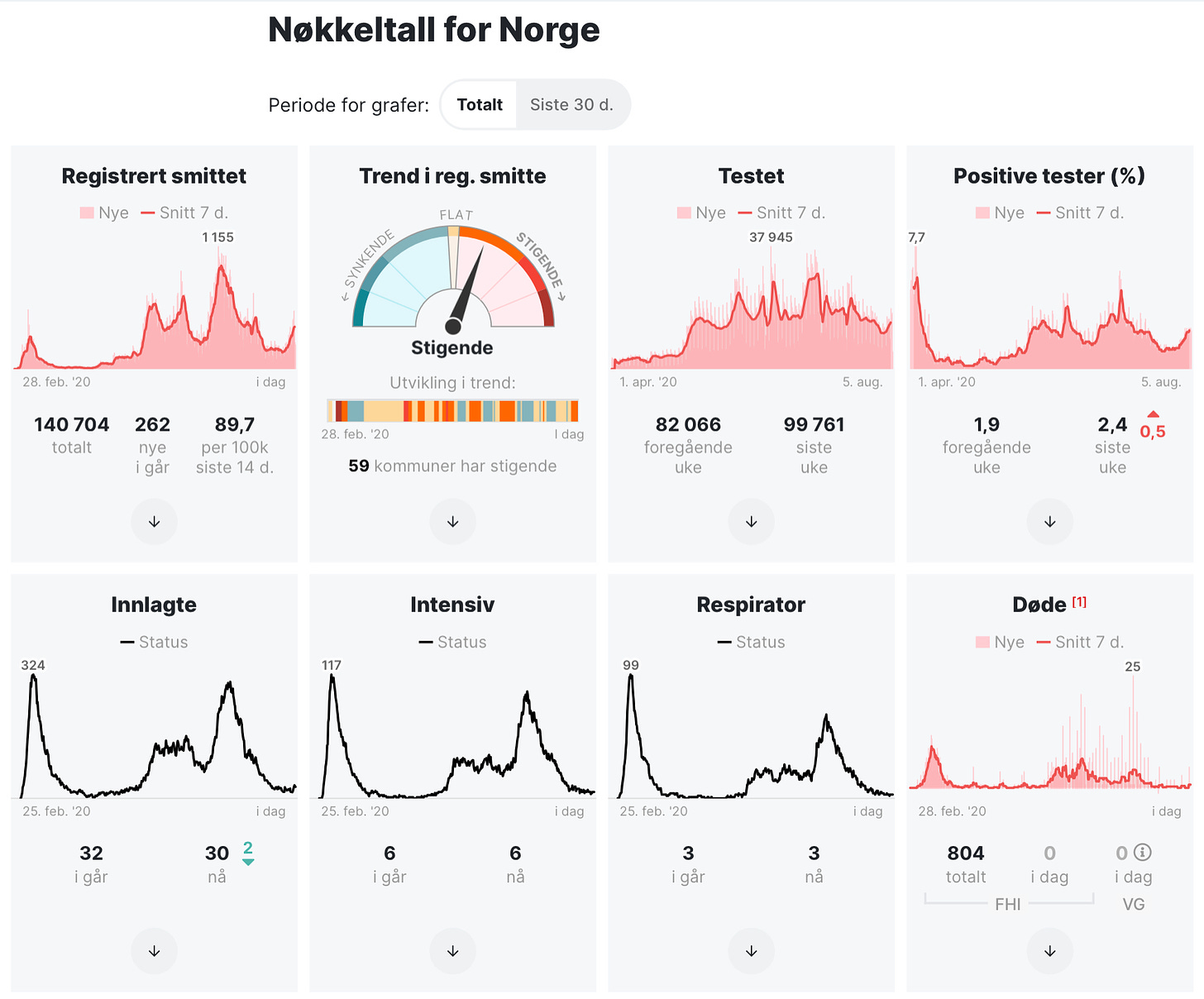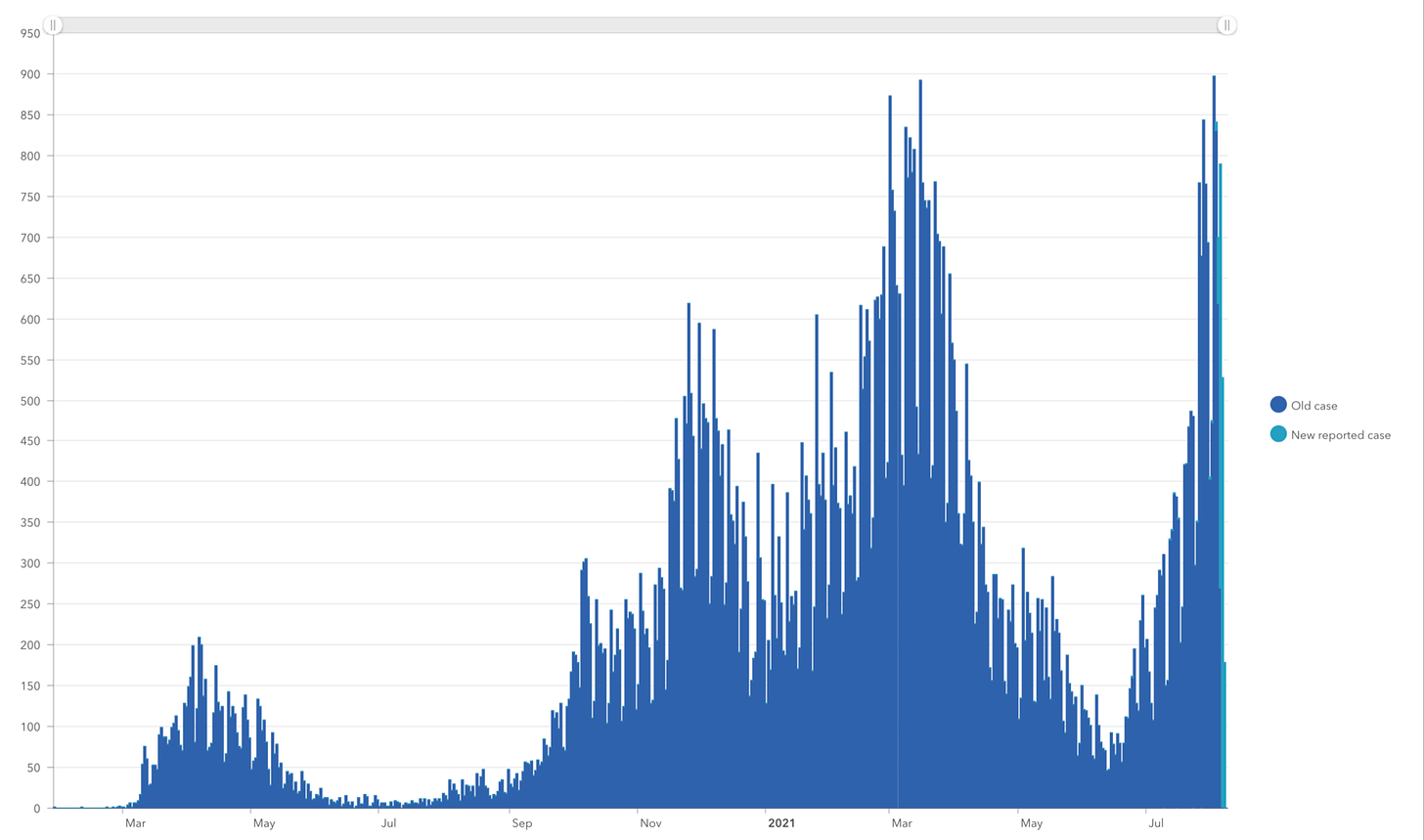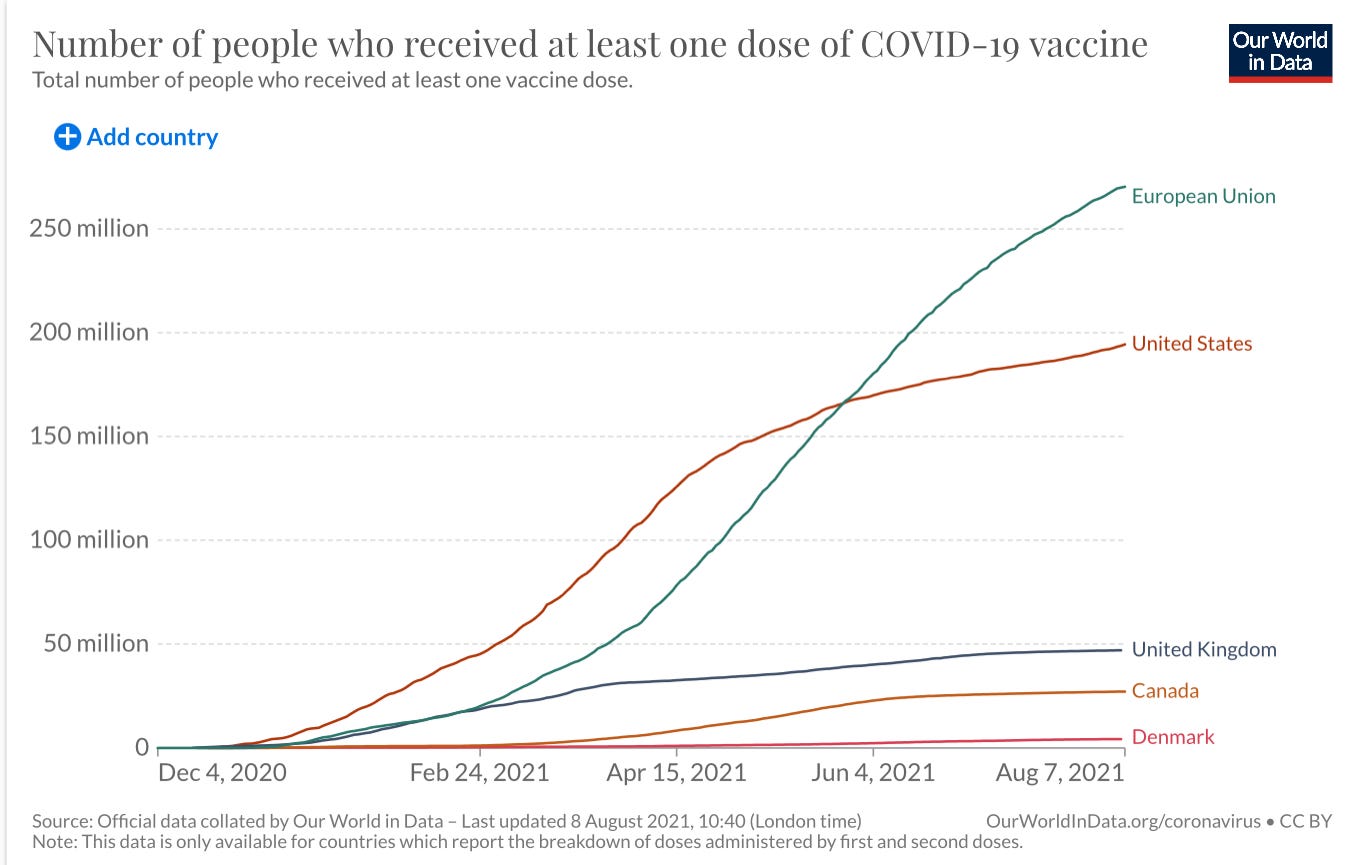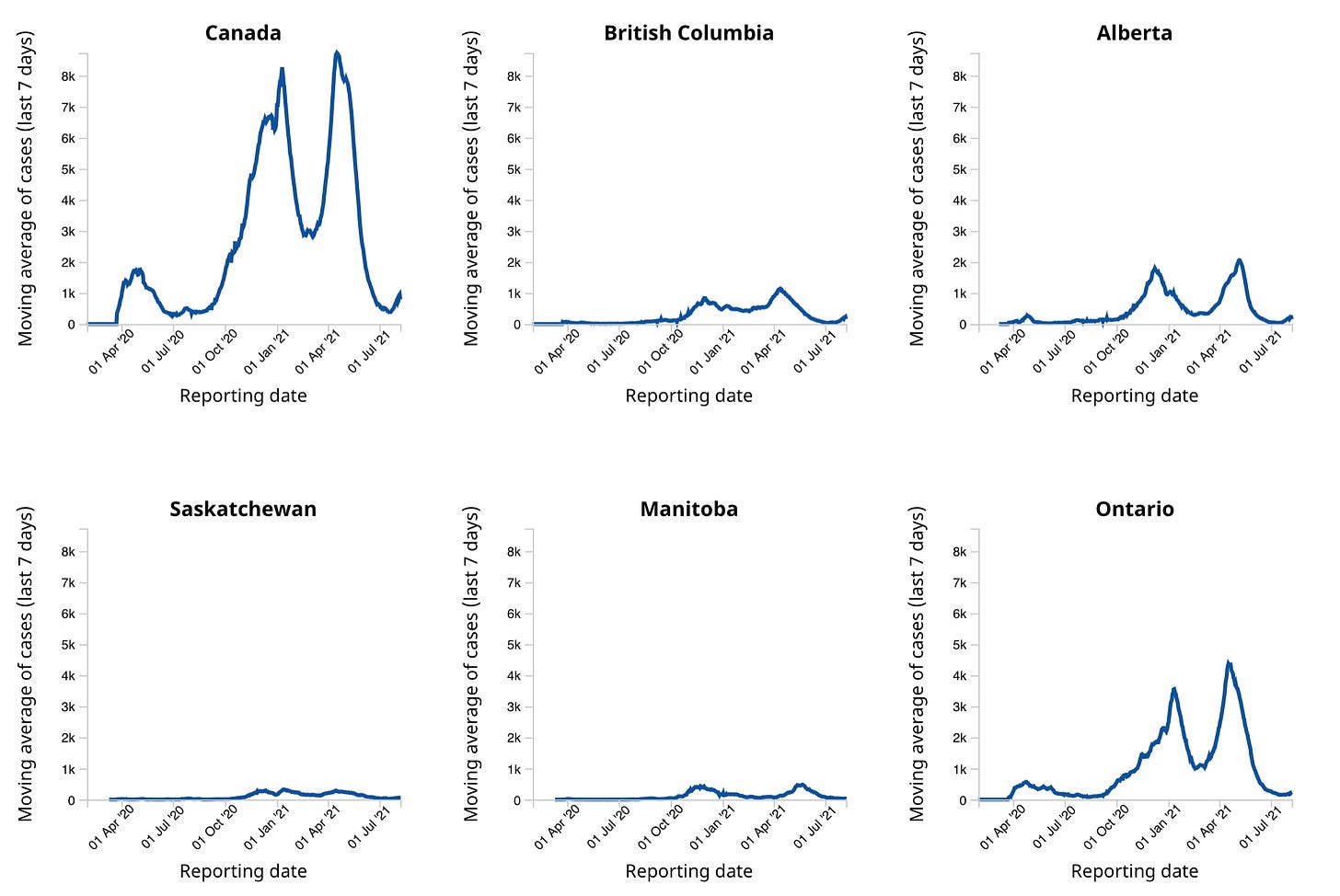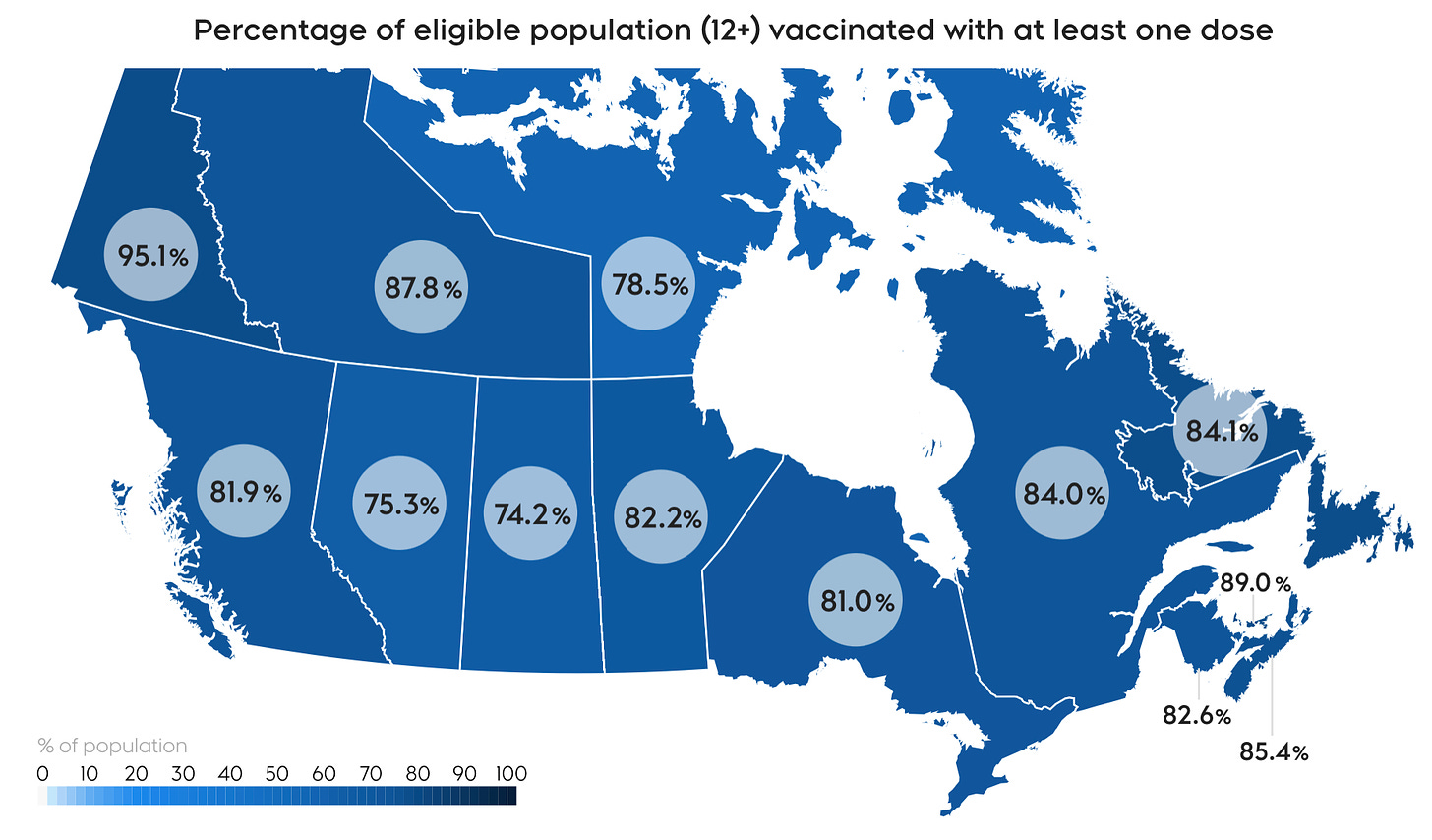Monday Morning News & Notes
Denmark relaxes COVID guidelines in schools as students return to class
🇩🇰
Denmark’s National Health Board has relaxed COVID guidelines dealing with COVID outbreaks in daycares and schools across the country.
Dr. Andreas Rudkjøbing:
"We would very much like to help get schooling back to normal as it was before the corona epidemic. We know that it is important for children's well-being that everyday life is recognizable. Therefore, our priority is to ensure that the schools remain open as much as possible.”
Students will only be sent home or a school closed if there’s a “major outbreak” or a super-spreading event. A major outbreak according to the agency could mean for example more than 40 infections at an education Institution. Another trigger would be if a “new and particularly worrying” COVID variant is detected among students or staff in a daycare or school.
The Sundhedsstyrelsen has also adjusted the definition of a close contact. Now, only a person or people within one-meter of someone determined to have the coronavirus for 15 minutes or more is deemed to be a close contact.
The health board still recommends anyone who has COVID symptoms to stay home and get tested, even if the person is fully vaccinated. Students and staff who are not yet vaccinated are also encouraged to get a corona test twice a week.
The agency says vaccination uptake among children 12 and over will also help prevent infection spread in primary schools.
-
Herd immunity against COVID is “unrealistic” in Denmark, according to a department head at the Staten Serum Institut.
Tyra Grove Krause told newspaper BT:
“If the vaccines were 100-percent effective against the variants that are in play now, and we had a 100-percent vaccination coverage among those who are 12 years and older, then we could talk about achieving actual herd immunity against the Delta variant. But this is unfortunately not reality, we can not achieve that.”
Krause notes herd immunity rates would have to be higher for the more volatile Delta variant, likely in excess of having 85% of the population vaccinated. Because Denmark will likely fall short of that, we will not be able to avoid coronavirus outbreaks in the future. She says this will be especially true among children who cannot be vaccinated yet and who are heading back to school today.
-
Region Hovedstaden is taking what it calls “new measures” to try and reach about 280,000 people in the region who haven’t responded to an invitation to book a vaccination appointment. As of this week, vulnerable patients, relatives, and staff can be vaccinated at the region’s hospitals. Starting next week, all hospital wards will have the discretion to order vaccine doses for patients as they see fit.
The capital region has already opened up residual vaccine doses without appointment to anyone who shows up 45 minutes before each vaccination center closes.
Next week, vaccination sites in Region Hovedstaden will remove the booking requirement and vaccinate anyone who comes in from 9am to 6pm. The region is activating five mobile teams that will have access to 1,000 doses per week and who can target vaccination opportunities anywhere there is a need. And staff at COVID testing centers will be able to refer people for vaccination who show up for testing who have not yet had a shot.
-
As of today, 21 of Region Sjælland’s 24 vaccination centers will administer COVID vaccines without the requirement to book an appointment. People who want a first or second dose can just show up and get a shot. The hope is this will remove some barriers to anyone who’s still hesitant to get the jab.
Here’s the full list of all 21 vaccination centers.
The remaining three vaccination sites in the region will soon also move to an appointment-free model, according to the region.
Region Midtjylland will remove the booking requirement at its vaccination centers as of tomorrow, August 10.
-
To date, the vaccination effort in Denmark has administered enough first vaccine doses to cover 73.2% of the population, while 58.9% are now fully vaccinated.
On Saturday, there were just 34,725 total inoculations done. It is worth noting that first doses continue to drop and in the last couple days have been under 10,000, which has not happened in long time.
While Denmark’s vaccination campaign is nearing its end, there’s still 25.8% of the population that isn’t vaccinated. That said, summer holidays are over and students are going back to school and some people may have chosen to put off vaccination for vacation. It’ll be interesting to see if vaccination rates pick up in the next few weeks.
-
Denmark’s Health Ministry says the number of young people getting vaccinated is rising rapidly. It says four weeks ago 7.4% of those aged 16 to 19 years old were fully vaccinated and now it has jumped up to 63.3%. Among those 20 to 24 years of age, the number of fully vaccinated has gone from 2.5% to 51.2% over the same period.
-
Denmark has added 2,632 infections and had no new deaths since Thursday’s update. It reported 865 COVID cases on Friday, 946 on Saturday, and another 821 on Sunday.
On Saturday, there were 163,437 total corona tests done, 64,434 PCR and 99,003 rapid, for a (PCR only) positivity percentage of 1.27%.
-
COVID hospitalizations (80) have jumped up (+18) since Thursday, while the number of infected people in an ICU (13) also rose (+4) of those, the number of people on a ventilator (11) went up as well (+2).
-
There are now 35 Danish kommunes with Covid incidence rates above 100 per 100,000 and of those, seven now have incidence rates above 200.
-
DR is reporting that the COVID incidence rates in Skagen have been cut in half, pulling the district back from the brink of a mandated lockdown. That said, the national broadcaster says that Ruth’s Hotel in the popular tourist areas was ordered closed on Sunday due to a number of employees testing positive.
-
Near-normal green continues to retreat in the eyes of the Foreign Affairs ministry in Denmark as it updated its COVID travel risk assessment map over the weekend.
Switzerland is now be-cautious yellow, with the exception of the regions of Valais, Bern, Fribourg, Solothurn, Aargau, Appenzell Innerrhoden, St. Gallen, Thurgau, Uri, and Zug all of which stay near-normal green.
In Belgium, the Wallonne region has gone yellow. Also becoming yellow are the regions of Centre-Val de Loire, Bourgogne-Franche-Comtè, and Hauts de France in France. Along with East Macedonia and Thrace in Greece and Sardinia in Italy.
🇬🇱
Students in the town of Sisimiut in Greenland have a one-week reprieve from going back to school. Greenlandic newspaper Sermitsiaq AG says Sisimiut Mayor Malik Berthelsen has postponed the start of school, which was supposed to be today, due to concern over coronavirus infections. Schools will instead begin the new school year on August 16. There are currently 22 active cases of infection in Sisimiut.
🇸🇪
Going into the weekend, the Swedish Public Health Agency warned that “the spread of infection is no longer at low levels” as the Delta variant becomes dominant in Sweden. In week 30, there were 3,451 confirmed coronavirus cases across Sweden, a week-over-week increase of approximately 30%. A whopping 76% of those infections were among people under the age of 40.
About 17% of all new COVID cases in Sweden are now travel-related, according to the health agency. Sweden recommends anyone who is not fully vaccinated get a COVID test after returning from trips abroad.
State Epidemiologist Anders Tegnell says increasing COVID infection numbers elsewhere in Europe pose a risk for Swedes who are traveling, especially those who are not vaccinated.
“We see a lot of cases with people who have been infected abroad in popular travel destinations in Europe and we want to remind you to get tested when you come home to Sweden. We have also received reports of large crowds at several holiday resorts in Sweden, including on Gotland, but also at dance venues in, for example, Stockholm. This is not good, the pandemic is still ongoing and we must continue to follow the recommendations to keep our distance.”
-
Region Stockholm says hospitalizations are increasing in Sweden’s capital region. The number of infected people in hospital in Stockholm rose from 34 to 47 from one week to the next. Infection numbers jumped by 20% from week 29 to 30, marking six straight weeks of rising corona numbers. Nine out of every ten infections in the region are now the Delta variant.
Acting Director of Health and Medical Care Johan Bratt:
“It is worrying but not surprising. The spread of infection has increased six weeks in a row now. The more infected we have, the more patients will need care.”
Bratt is urging people to get vaccinated.
“There is a connection between the number of infected and the number of seriously ill patients with COVID19 who need hospital care. We can break that connection by vaccinating as many people as possible.”
Region Stockholm continues to underscore that due to “technical problems” a reporting lag continues. It says an ongoing, significant backlog in sequencing positive test results also means variant data could be weeks behind.
Next week, region will begin vaccinations for those 16 to 17 years old.
🇳🇴
Norway has added 1,241 infections and had no new corona deaths since its Thursday update.
COVID hospitalizations (30) ICU numbers (6) and those on a ventilator (3) all remain unchanged since Thursday.
To date, 68.51% of Norwegians have had one vaccine dose and 35.80% have had both doses.
-
Norway’s National Institute of Public Health says it will be shorted about 100,000 vaccine doses from Moderna over the next two weeks. The institute says the shortfall will mean, in some cases, vaccination appointments will have to be rescheduled.
Vaccination Program Assistant Director Jasper Littmann:
“Variations in the number of doses that Norway receives can occur continuously due to delays in the production process. FHI is in continuous dialogue with the producers, but still changes may occur within a short deadline.”
He says the agency is “in dialogue” with Moderna over its problems, adhering to its own promised delivery schedule and about getting “compensation doses” to Norway as soon as possible.
🇫🇮
A fourth Delta variant-driven COVID wave has driven infection numbers to record levels in Finland. On Sunday, it registered 1,322 coronavirus infections. Technically, that would be highest-ever number of daily infections reported to date. However, the Finnish Institute for Health notes Sunday’s report contained a backlog of cases over previous days.
That said, the institute organizes cases by date of positive test, so through that lens, with corrected numbers, August 2 set the highest number of new corona cases, exceeding the previous record set on March 15.
To date, 3,760,883 1st vaccine doses (67.3% of the population) have been administered while 2,153,861 (38.6%) people have had both doses.
The health institute says more than 60% of those aged 16 to 19 years old have received their first dose.
-
As of yesterday, Finland has officially tightened restrictions on restaurants again. According to YLE areas of the country, in what is called the “community spread” phase of Finland’s three-tiered COVID risk assessment system restaurants must end alcohol sales at 10pm. Seating restrictions also apply in beer gardens and terraces. Restaurants in areas deemed to be in the “acceleration phase” restaurants can serve booze only until midnight.
Finland currently considers Southwest Finland, Pirkanmaa and Kymenlaakso, as well as the Helsinki metropolitan area, so Helsinki, Espoo, Vantaa, and Kauniainen to be in the community spread phase.
-
In an interview with Helsingen Sanomat Finnish Prime Minister Sanna Marin said the Delta variant has made this fourth infection wave “unpredictable.”
“We want and strive to keep society open. As vaccinations progress and people receive both doses of vaccine, we also have a much greater chance of doing so. But it is still possible that even more restrictive measures will have to be introduced in the autumn if the situation deteriorates rapidly and is reflected in the burden on hospital care. At the moment, there is no need for an emergency brake, ie quick restraint, but yes, of course we are monitoring the situation very closely."
The Marin government began introducing a vaccine passport system a few weeks ago.
🇩🇪
Germany’s public health agency, the Robert Koch Institute, says the country’s vaccination campaign has saved thousands of lives. In a study published on Friday, the agency said vaccinations prevented 38,000 deaths during the third wave driven by the Alpha variant. It also claims vaccines prevented over 700,000 potential infection cases, 76,000 hospitalizations, and kept almost 20,000 people out of an intensive care unit.
🇮🇹
Italy continues to expand requirements for its newly implemented coronapas. The requirement to show proof of vaccination, recent infection, or negative COVID test now applies to all teachers and all passengers on public transport, including domestic airlines. For some employees in Italy who refuse to show a coronapas, they can be suspended without pay. In Italy, a vaccine passport is already required to enter cinemas, museums, sports halls, bars, and restaurants.
🇪🇺🇺🇸🇬🇧🇨🇦🇩🇰
The European Union has surpassed the United States for the number of first vaccine doses administered as the American inoculation effort hits a wall.
🇨🇦
Canada is easing COVID border restrictions today as it opens its doors to fully vaccinated American citizens and permanent residents. Any US travelers heading North will have to meet the same requirements as Canadians returning home. To be considered fully vaccinated, they must have two doses of a Health Canada approved vaccine, with the second dose no less than 14 days prior to crossing the border. They must also bring all required documentation and upload travel information, including vaccination paperwork, to the ArriveCAN app. Important to note the American border remains closed to Canadians.
Vaccinated travelers coming to Canada will also no longer have to take a second COVID test within 72 hours of crossing the border unless randomly selected to do so.
Also as of today, children under the age of 12 who cannot be vaccinated will no longer be required to quarantine for 14 days if they are traveling with vaccinated parents. The kids will have to take two COVID tests, though one on arrival, and the second eight days later.
Worth noting the quarantine mandate remains in place for all children over 12 years old who are unvaccinated, who are traveling with parents who are.
-
Canada reported 518 new infections and another nine coronavirus deaths yesterday. These numbers will change today when a number of provinces who do not update numbers on the weekend file three days worth of COVID data.
Canada’s infection curve nationally is trending back upward, as it is in the provinces of British Columbia, Alberta, and now Ontario.
On the vaccination front to date, 27,180,152 1st vaccine doses (71.39% of the total population) have been administered while 23,231,234 people (61.02%) are now fully vaccinated.
Since Friday, Ontario has added another 1,141 infection cases as it begins to see numbers rise once again. The province reported 340 infections on Friday, 378 on Saturday, and another 423 cases on Sunday.




